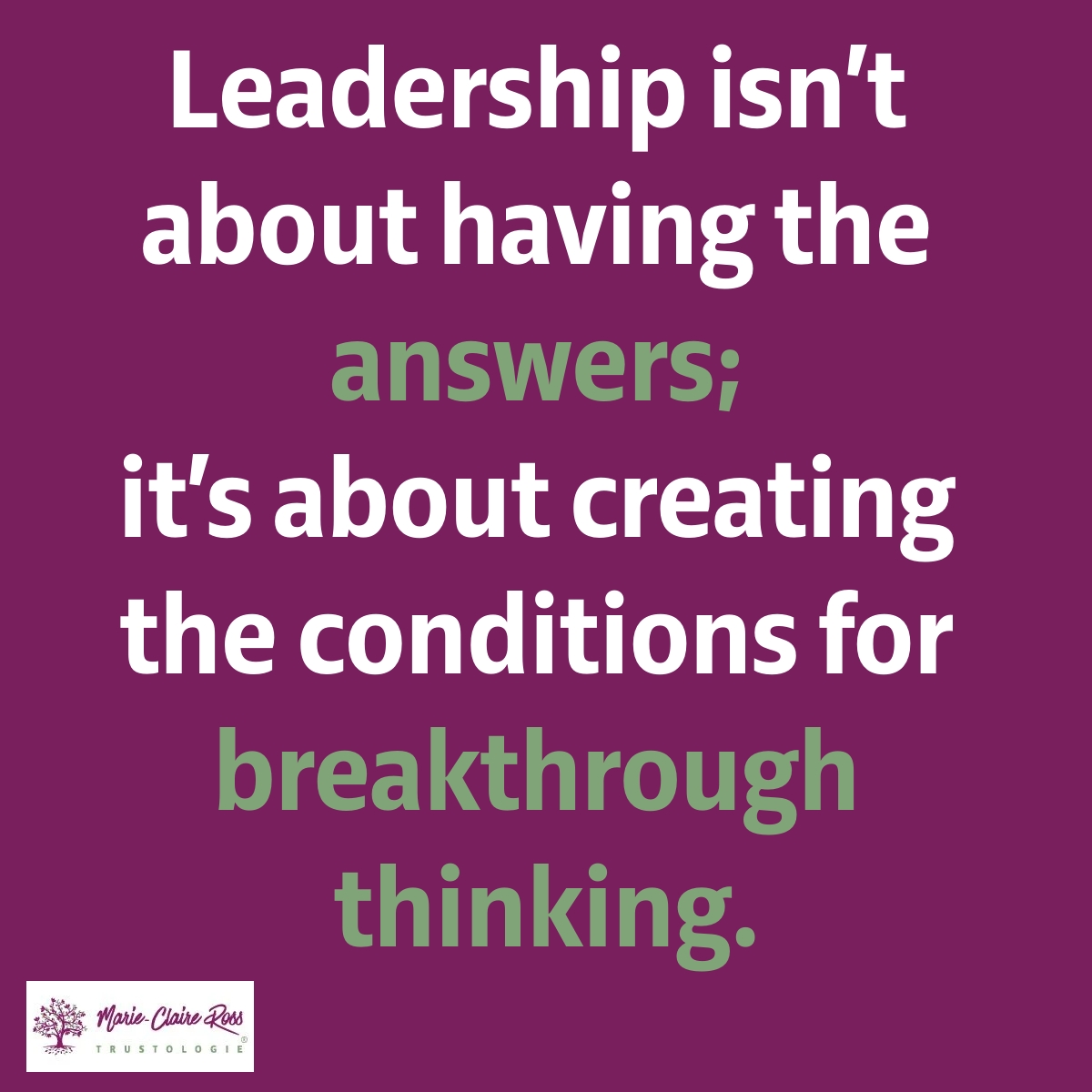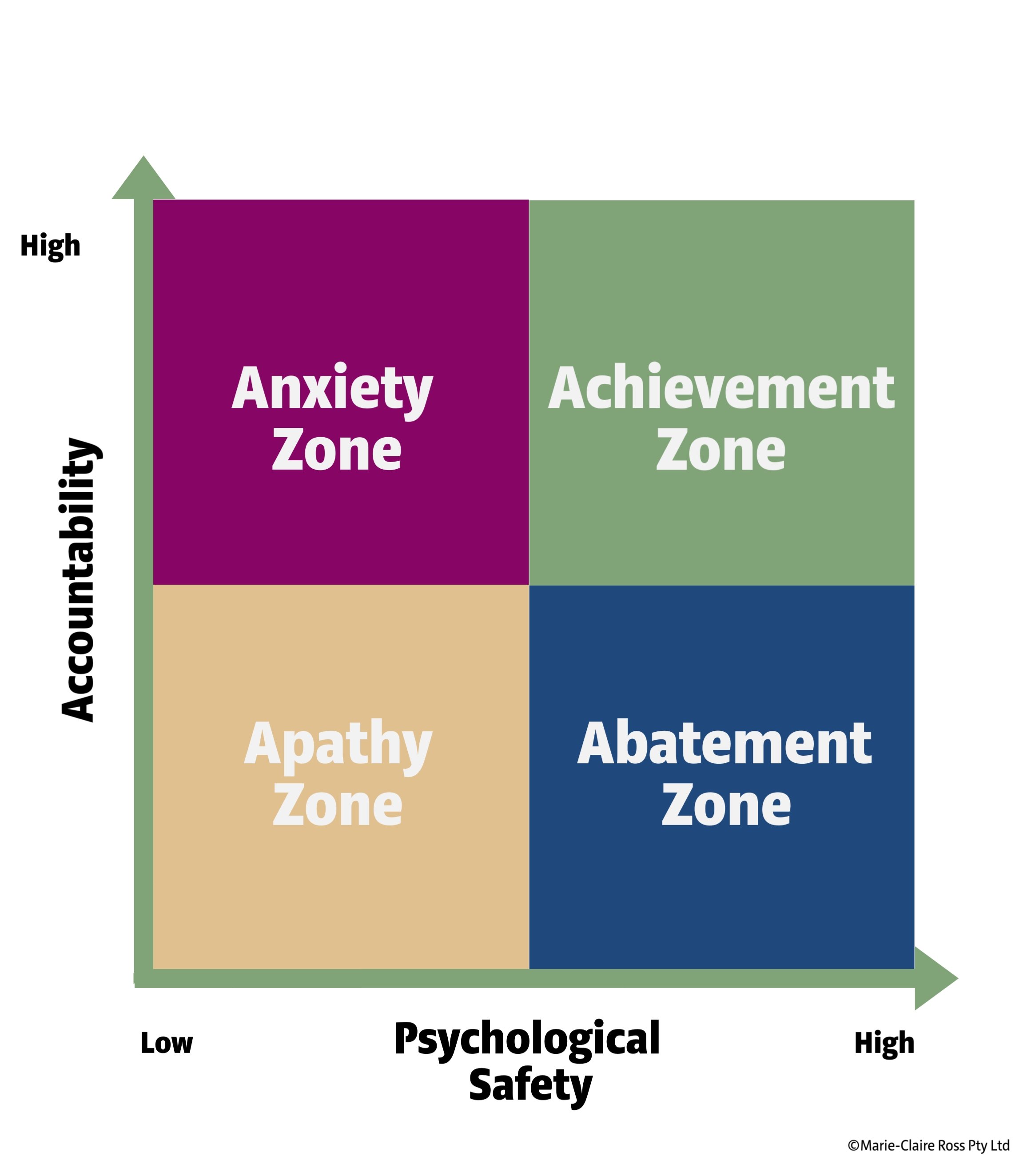8 min read
Beyond the "Why": 5 Coaching Secrets to Unlock Curiosity in Leadership
When my daughter was 17 months old, she discovered a superpower: the word “Why?”For the next two years, it was her response to almost everything.
Develop leaders, strengthen executive teams and gain deep insights with assessments designed to accelerate trust and performance.

Transform how your leaders think and perform with keynotes that spark connection, trust and high-performance cultures.

Explore practical tools, thought-leadership and resources to help you build trusted, high-performing teams.

Trustologie® is a leadership development consultancy founded by Marie-Claire Ross, specialising in helping executives and managers build high-trust, high-performing teams.

3 min read
Marie-Claire Ross : Updated on July 13, 2025

Recently, one of the biggest complaints that I have been hearing about leaders is how a lack of self-awareness is impacting their performance. Employees complain about leaders who are totally oblivious to how their behaviours, words and actions create distrust and frustration amongst those around them.
In fact, a study by Carter Cast to uncover why managers and leaders had been fired, demoted or had plateaued in their careers revealed that the culprit was personal blind spots. Leaders who were unaware of weaknesses in their interpersonal behaviour, and were unwilling, when confronted with evidence, to make adjustments.
Research indicates that those who have an inflated sense of their own skills and who understate these interpersonal issues are six times more likely to fail than those with accurate self-awareness.
But not only that, when we lack self-awareness we really do fall into the narcissism camp. Narcissists are unable to see their faults and spend most of their time defending their actions, talking about how great they are and pushing their own agenda. Narcissists make terrible leaders. So if you know that you're not a narcissist, then do what you can to improve your self awareness. Your people will thank you for it!

8 min read
When my daughter was 17 months old, she discovered a superpower: the word “Why?”For the next two years, it was her response to almost everything.

11 min read
I have a friend who often finds herself at the mercy of her emotions. Recently, she called me to rehash a confrontation she’d had with a group of...

9 min read
True leadership presence isn’t a performance or a set of charisma hacks; it is the felt experience of who you are being in the room. By cultivating...

In the workplace, we all know the importance of accountability as a leader. Yet, rarely do we talk about how personal responsibility drives...
A quality is part of our personality that comes naturally to us. For example, you might think of one of your friends as 'always being generous'....

The pandemic has been a game-changer in so many aspects. In the workplace, it has really crystallised what we want in our work experience.